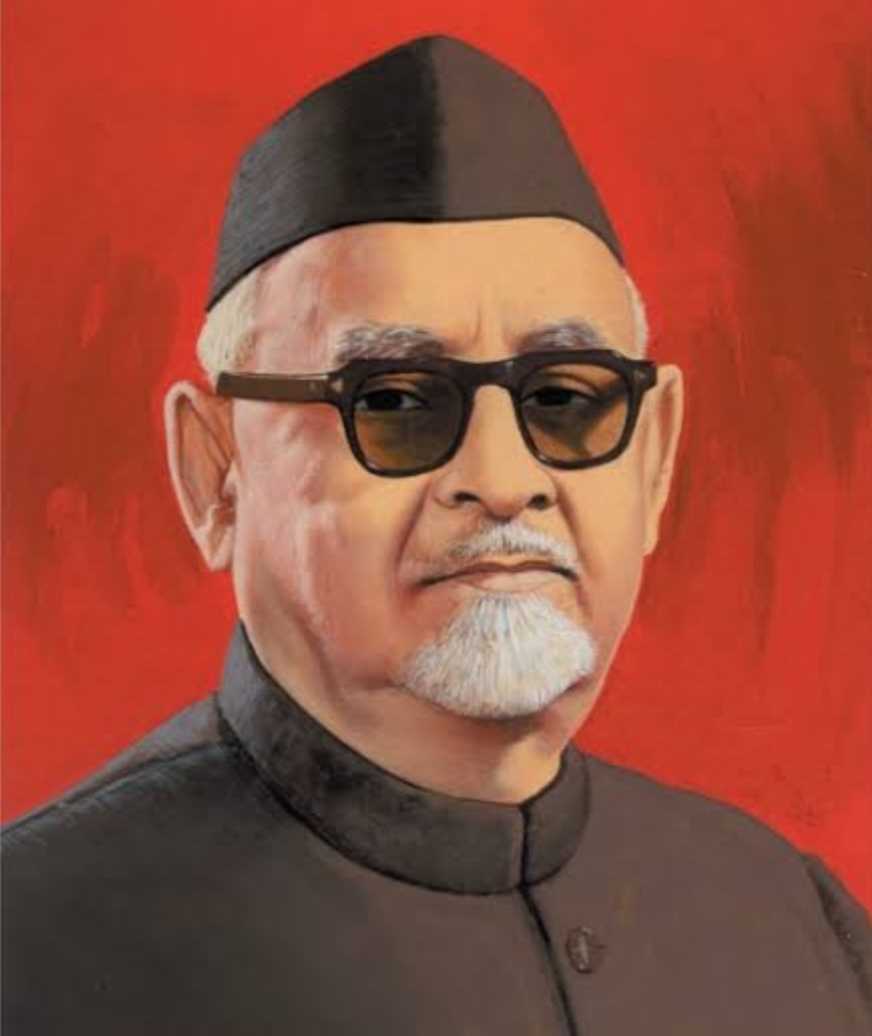Dr. Zakir Husain: A Scholar, Patriot, and Visionary President(8 February 1897- 3 May 1969)
Dr. Zakir Husain: A Scholar, Patriot, and Visionary President(8 February 1897- 3 May 1969)
In the illustrious pages of Indian history, few names shine as brightly as that of Dr. Zakir Husain—freedom fighter, educationist, thinker, and the third President of India. His life was a radiant blend of intellectual brilliance, deep patriotism, and unwavering dedication to national service. Dr. Zakir Husain was not only a distinguished politician and statesman but also an extraordinary academician who gave a new direction and soul to the Indian education system.
Early Life and Education
Dr. Zakir Husain was born on 8 February 1897 in Hyderabad into a respected and affluent Pathan family. From an early age, he exhibited a profound love for learning. Though raised in an Islamic cultural environment, he recognized the value of modern education early on. He pursued higher education at the Aligarh Muslim University, where his exceptional intellect and strong nationalist ideas set him apart. It was here that he resolved to uplift the Muslim community and society at large through the power of education.
Participation in the Freedom Struggle and Educational Contribution
In 1920, inspired by Mahatma Gandhi’s call for the Non-Cooperation Movement, Dr. Husain left his studies and joined the freedom struggle. This decision marked his deep commitment to the nation. Understanding the significance of education in building a self-reliant society, he played a crucial role in founding Jamia Millia Islamia in Aligarh. This institution was established as a response to the British education system, aiming to provide education rooted in Indian values and culture. Dr. Husain dedicated his life to nurturing the institution and served as its Vice-Chancellor for many years.
As an educationist, his contributions were remarkable. He believed education was a powerful tool for character building, knowledge enhancement, and social upliftment. He emphasized practical and vocational education to ensure self-reliance among students. His philosophy of education resonated with Gandhiji’s idea of Basic Education, which stressed the integration of learning with manual labor and skills. Jamia Millia Islamia stands as a living testament to his educational vision, where students received training not only in academics but also in craftsmanship and applied skills.
Intellectual Brilliance and Literary Contributions
Dr. Zakir Husain was a man of profound scholarship. Fluent in Urdu, English, and German, he was well-versed in the thoughts of Plato, Russell, and other Western philosophers, while also being deeply rooted in Indian philosophy and culture. He authored numerous books and essays that reflect his educational and philosophical ideals. His stories for children remain widely appreciated even today, showcasing his literary elegance and love for young minds.
Political Journey and National Service
Dr. Husain’s role in public service was equally significant. From 1957 to 1962, he served as the Governor of Bihar, and from 1962 to 1967, he held the esteemed office of Vice President of India. In 1967, he was elected as the third President of the Republic of India. As President, he brought dignity, wisdom, and impartiality to the highest constitutional office. He worked diligently to uphold the unity and integrity of the nation, safeguard constitutional values, and elevate India’s global stature.
Secular Vision and Commitment to Unity
Dr. Zakir Husain was a staunch believer in secularism and inclusive nationalism. He respected all religions equally and strove tirelessly to promote national integration and communal harmony. He believed that India’s strength lies in its diversity and that every citizen deserves equal opportunities, regardless of religion or background.
Demise and Enduring Legacy
On 3 May 1969, Dr. Zakir Husain passed away while serving as the President of India, becoming the first Indian President to die in office. His passing was a tremendous loss to the nation. Yet, his legacy continues to inspire. Jamia Millia Islamia has evolved into a premier university and continues to carry forward his educational ideals. His thoughts and values remain relevant to the Indian education system and to the vision of a united, progressive India.
Conclusion
Dr. Zakir Husain’s life is a powerful testament to how education, sincerity, and service can shape not only an individual’s destiny but also the future of an entire nation. He remains a luminous figure in Indian history—a guiding star whose legacy continues to enlighten generations. Through every role he played—be it as an educator, philosopher, or President—he exemplified excellence and left an indelible mark on India’s national identity.
